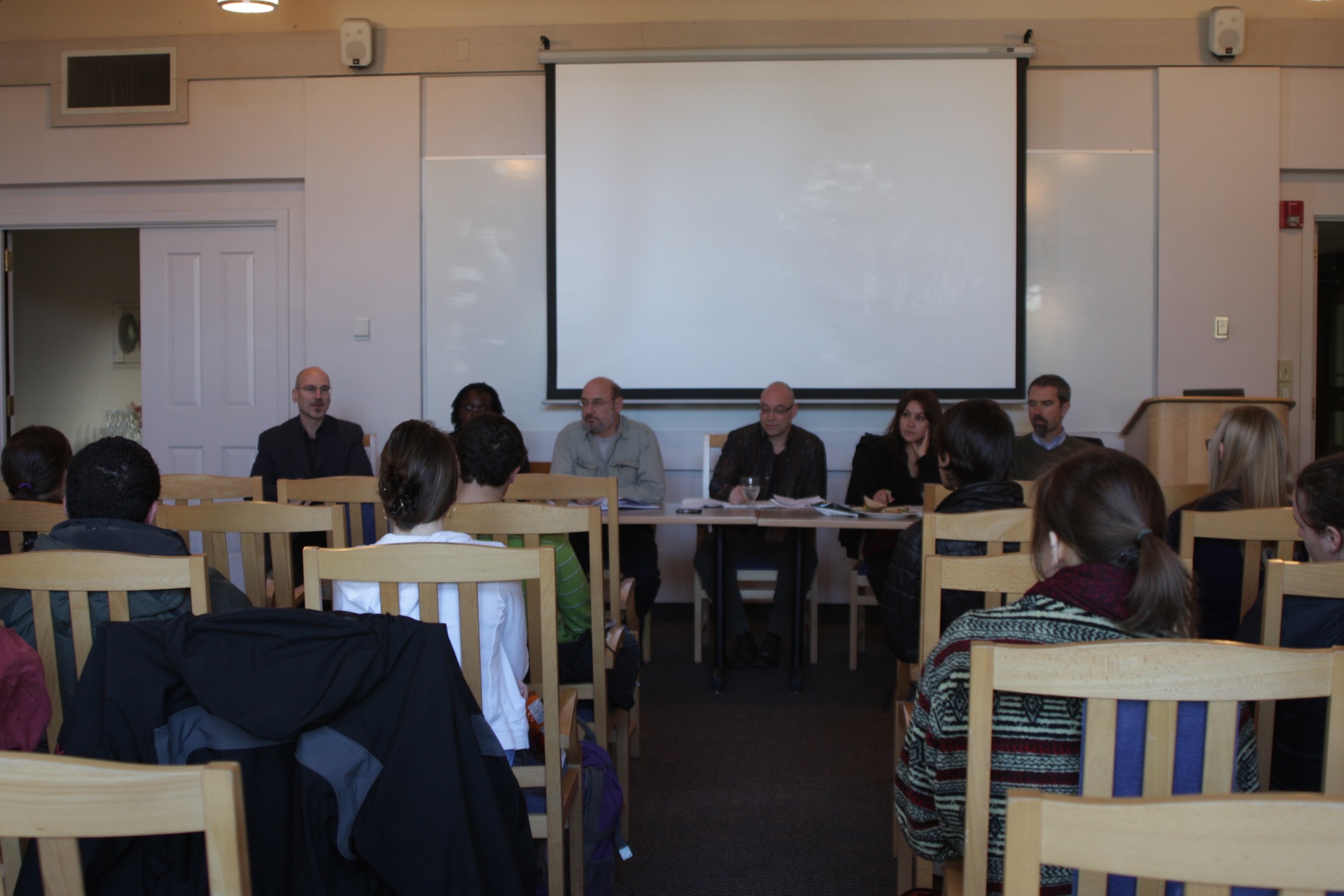
Applying academic knowledge to work in the real world can be challenging with a liberal arts degree, especially in the field of environmental policy.
“From the Ground Up,” a workshop that took place on campus April 10 and 11, responded to this challenge by exposing students to the benefits of research and practical experience in current environmental initiatives.
The workshop was meant to be an interactive experience between scholars, students and activists in which they could engage in discussion about practical environmental policy-related work, both in the field and in the classroom.
It was the brainchild of assistant professor of Global Environmental Politics Rachel DeMotts, who is currently teaching at Puget Sound with a grant from the Andrew W. Mellon Foundation. It was this foundation that sponsored the workshop and will sponsor similar conferences in the future.
Through her grant, DeMotts has been given the opportunity to organize and facilitate workshops like this one, which are meant to illustrate the marriage of “theory and practice” in environmental work and discover ways to better environmental policy through partnerships between academics and practitioners.
“My hope is that students walk away from this with a better idea of how their studies can contribute to their work in the real world,” DeMotts said.
With this in mind, she brought to campus three pairs of academic-practitioner teams with environmental field experience to present their collaborative work to students and faculty. In doing so, she hoped to inspire future work and reveal the ways in which all parties can, and perhaps should, join forces.
DeMotts has been working for the past year on conceptualizing, organizing and promoting the event using her connections in the world of environmental justice. Each presenter is a figure from her past with whom she has collaborated at some point in her career.
“At the heart of the workshop is the idea of community-student and faculty-student collaboration,” DeMotts said. “By bringing people together, we want to demonstrate opportunities for partnership and the ways in which their work relates to and benefits each others’ perspective.”
“On a strictly academic level, we wanted to encourage faculty-student partnerships and research opportunities,” DeMotts added. “That type of collaboration is often overlooked, even at liberal arts institutions, which is unfortunate because it can be very valuable to both the faculty member and the student.”
The workshop was also supported by the Environmental Policy and Decision Making Program and the Department of Politics and Government at Puget Sound.
“This is the first time I have brought an event like this together on my own, so it was definitely a learning process,” DeMotts admitted. “But Dan Sherman and the rest of the faculty in the Politics and Government Department have been extremely helpful and supportive.”
Each day began with a presentation from an academic-practitioner team who explained their experience integrating research into their environmental project. On April 10, Director of Integrated Agro and Environmental Services in Namibia, Daily Nheta, and School of Environment, Enterprise and Development professor Larry Swatuk presented their work on implementing conservation initiatives in Botswanan and Namibian communities.
“Through our discussion, I not only want to present an African perspective on community-based conservation, but also revive the relationship between academics and practitioners and hopefully influence curricula to stress the importance of such relationships,” Nheta said.
Day two opened with a discussion entitled, “Globalization and Militarization on the U.S.-Mexico Border” from University of Texas professor Jeffrey Shepherd and New Mexico State University professor Cynthia Bejarano.
Following these presentations were panel discussions, moderated by DeMotts, which gave students and faculty an opportunity to interact with presenters.
“With these discussions, I wanted to help facilitate a dialogue about how all parties can use scholarship and practical experience to bring about social and environmental justice most effectively,” DeMotts said.
“My hope is that students realize through these discussions that the field work these professionals are doing doesn’t have to be separate from the academic work that students and faculty do in class,” she said. “I hope they feel more connected to these activists and researchers, and that they can begin to understand how to cross the boundaries between academia, policy-making and activism.”
[PHOTO COURTESY / HOLLY HARTMAN]
